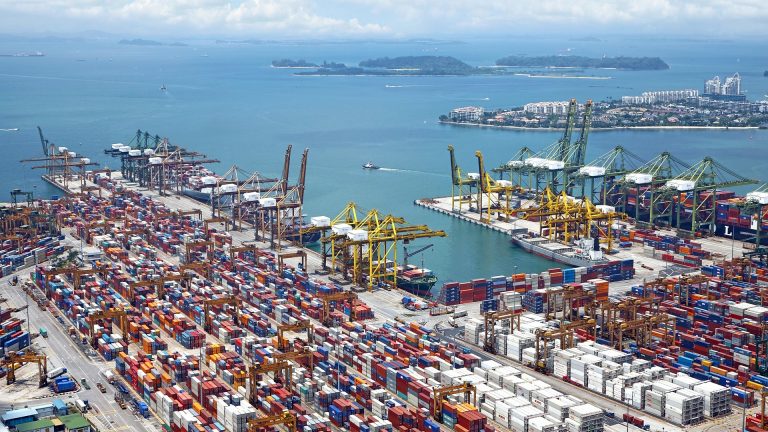In 2018, President Donald Trump slapped tariffs and other trade barriers on China due to the country’s unfair trade practices and intellectual property theft, triggering the trade war between the two nations. Though Beijing promised to do away with unfair trade practices and implement stricter laws to protect American IPs, such promises haven’t panned out as expected.
China has also failed to meet the terms of the phase one trade deal agreed upon by both parties in January last year. But now, American business groups are asking the Joe Biden administration to end the country’s trade war with China and restart talks.
In a letter to U.S. Trade Representative Katherine Tai and Treasury Secretary Janet Yellen, around 30 major businesses from sectors such as pharmaceuticals, semiconductor, and agriculture, stated that China met “important benchmarks and commitments” that are beneficial to American farmers, businesses, ranchers, and workers.
The letter asks the administration to “retroactively restore product exclusions that expired in 2020; reinstate a new, fair, and transparent tariff exclusion process; and continue negotiations with China to remove both nations’ counterproductive tariffs as soon as possible… These steps are sorely needed to mitigate the tariffs’ significant and ongoing harm to the US economy, US workers, and US national competitiveness.”
The American business consortium went on to state that tariffs slapped on Chinese imports had raised the cost of manufacturing and services for American businesses, making their exports “less competitive abroad.” The Trump administration had imposed additional tariffs on $360 billion worth of Chinese imports which continue to remain in place. American business groups asked the U.S. trade representative to grant companies exceptions to some tariffs.
Success
You are now signed up for our newsletter
Success
Check your email to complete sign up
The letter added that additional work was needed to ensure China fulfills commitments it made as part of the phase one deal. Beijing had promised to buy large volumes of American goods in exchange for a reduction in tariffs on Chinese imports. The U.S. and Chinese representatives are expected to meet to review the phase one deal’s implementation. However, there have only been minimal talks on the matter.
According to data analyzed by Chad Brown, a senior fellow at the Peterson Institute of International Economics (PIIE), China is lagging far behind in meeting its purchase targets as agreed in the phase one agreement.
In an article at PIIE, Brown points out that China committed to buying $173.1 billion worth of American goods in 2020. However, China’s total American imports were only $99.9 billion in 2020, just 58 percent of its commitment. By 2021, China’s purchase commitment would come to $193.3 billion. But by June 2021, the country had only purchased $68 billion in American products, which means that Beijing is likely to miss its targets once more this year.
In an August 6 press briefing, White House press secretary Jen Psaki was asked by a reporter about the letter written by business groups to the administration. Psaki stated that the president is “always going to use every tool in his toolbox” including tariffs to fight unfair trade practices that hurt American businesses, farmers, and workers.
“He’s been very clear that he thinks that a go-it-alone strategy is a losing one. We’re stronger when we work with our allies and unite the world’s GDP. I know we’ve talked about an ongoing review, including tariffs; I don’t have any preview for you or timeline for that conclusion,” Psaki said.
In an interview with NYT, Adam Hodge, spokesman for the Office of the United States Trade Representative, said that the American economy had grown at the fastest rate in four decades in the first half of the year and that the Biden administration was seeking to conduct a “robust, strategic review” of the country’s trade ties with China to create an “effective policy.”
Meanwhile, the U.S. trade deficit hit a record $75.7 billion in June this year as a rebounding American economy led to a spike in demand for imports. The trade deficit rose by 6.7 percent from the May figure of $71 billion. The goods deficit with China surged by $27.8 billion in June, an increase of 5.8 percent from May. For 2021, the trade deficit with China is at $158.5 billion, which is 19.2 percent higher when compared to the same period last year.
Some experts predict a slowdown in imports in the coming months. “With the peak in consumer goods demand behind us, we expect consumer goods imports to weaken from here while survey measures of export orders support that exports growth is set to strengthen,” Michael Pearce, senior U.S. economist at Capital Economics, said to Associated Press.















